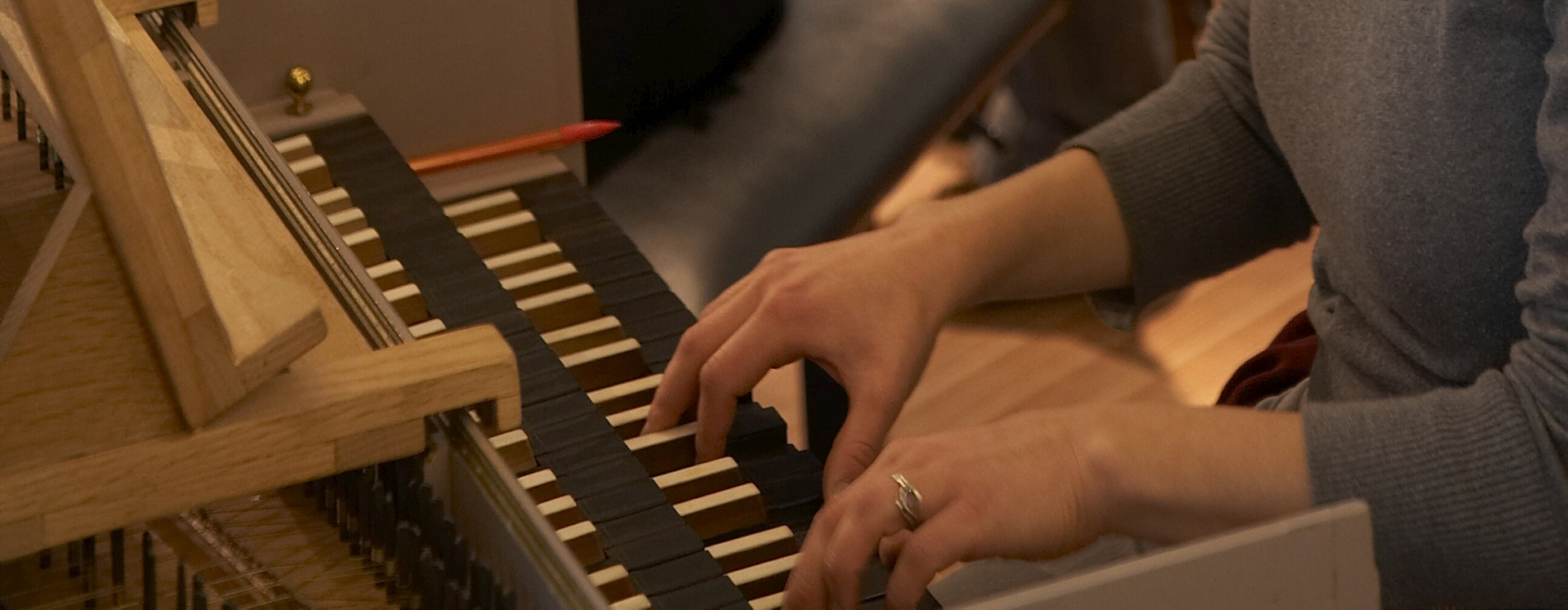Department of Keyboard Studies
The Department of Keyboard Studies trains harpsichordists, fortepianists, pianists and organists to become excellent musicians with outstanding career perspectives in the international music world. At the Conservatorium van Amsterdam you study in a creative environment, an environment where close track is kept of the latest developments and where one’s own interests and experiments may be pursued. Our highly qualified teaching staff guarantees a versatile and stimulating educational ambience. It stands to reason that the student population includes many prize winners of internationally renowned competitions and that many alumni have developed careers on noted stages both at home and abroad.
Principal subjects
The Department of Keyboard Studies offers the following principal subjects:
Leading to the following degrees:
- Bachelor of Music
- Master of Music
In addition, we offer preparatory programmes for the bachelor and the master curriculums. For young musicians ready for an education at conservatory level, we offer the Sweelinck Academy, a national programme for those exceptionally gifted, ages 8-18.
Because the various departments closely collaborate with each other, students can take advantage of a richly varied curriculum. The principal studies harpsichord, fortepiano and organ are firmly embedded in the Early Music Department.
Multidisciplinary studies
The master programme also offers various multidisciplinary profiles, such as 'Early Keyboards', a programme combining a choice of clavichord, harpsichord, organ, fortepiano, basso continuo and improvisation.
Curriculum
The curriculum concentrates on the professional practice of contemporary keyboard performers. Students develop their knowledge of the different instruments and the corresponding repertory and performance practice in a wide variety of ways: weekly individual lessons, workshops, group lessons, repertory classes (on various instruments and with diverging repertory), faculty classes and masterclasses, given by leading musicians from the Netherlands and abroad. Students have the opportunity of working with all the teachers at the department and are encouraged to take advantage of the artistic and intellectual potential at the conservatory.
In all of this, theory and practice go hand in hand. In the course ‘Keyboard Musicianship,’ students work on crucial skills such as prima-vista performance, practical harmony, transposition and improvisation. In the theory and history courses a direct link is made to the music included on the student’s performance programme. Thus in the curriculum the connection between theoretical and historical knowledge and onstage performance is continually explored in depth. Through various projects students become acquainted with the expertise and views of other departments.
Ensembles
In today’s professional practice well-developed ensemble skills are of the utmost importance. That is why at the Conservatorium van Amsterdam a lot of space is devoted to ensemble playing in all its facets, from duets and Lied accompaniment to large chamber music ensembles, the CvA Symphony Orchestra and the Sweelinck Baroque Orchestra. During the bachelor phase, part of the curriculum includes an intensive chamber music programme allowing students become oriented to a wide variety of ensemble formations and stylistic periods, including the most recent music.
Facilities
A high-level education also requires a high quality study environment. That is why students at the Conservatorium van Amsterdam have top-level instruments and facilities at their disposal. The conservatory owns a large assortment of harpsichords and clavichords, Viennese, French and English fortepianos, and historical grand pianos from the Sweelinck Collection. The professional concert halls at the conservatory are equipped with Steinway concert grand pianos and the classrooms have Steinway grand pianos. Organists use historically renowned organs in Amsterdam, Haarlem and Alkmaar. In addition, the practice rooms at the conservatory are acoustically balanced, and locations with special historical instruments are equipped with excellent practice facilities.
Preparing for the Professional Practice
During enrolment students already have a foot in the professional practice and actively contribute to the artistic climate at the conservatory. They give concerts at the conservatory halls, and also present themselves at concert series in the Concertgebouw, the Muziekgebouw aan ’t IJ, and other stages both in and outside Amsterdam. In addition, they may audition for solos with the Symphony Orchestra of the Conservatorium van Amsterdam, or the Sweelinck Baroque Orchestra, who work several times a year under the direction of renowned conductors from the Netherlands and abroad on an ambitious programme performed at halls throughout the Netherlands.
Instruments on loan
The CvA seeks to offer its students access to excellent instruments. The Department of Keyboard Studies is therefore very pleased with the Dutch Musical Instruments Foundation’s decision to offer two instruments from their collection on loan. In this way a large group of talented students get the opportunity to play these instruments. The Foundation welcomes the way the CvA keyboard programmes incorporate the use of period instruments and their performance practice.
The oldest of the two instruments is a rare, original Viennese fortepiano from 1795, a very valuable instrument. The other is a straight-stringed Bechstein from 1864, an ideal instrument for students to play repertoire by Brahms or his contemporaries on.
